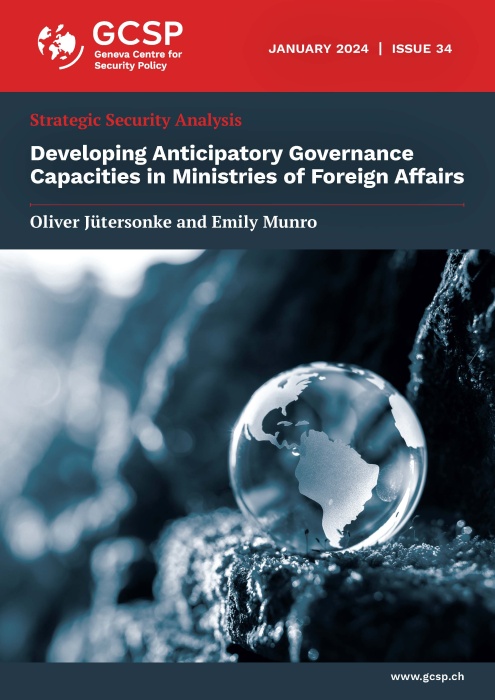Developing Anticipatory Governance Capacities in Ministries of Foreign Affairs
15 January 2024
Key points
- Using strategic foresight in ministries of foreign affairs (MFAs) involves
employing a portfolio of approaches for anticipating futures across different
time horizons, as part of what is institutionally becoming known
as anticipatory governance. - This approach turns the narrative that MFAs usually only react to the
current volatile and complex environment characterised by crises such
as climate change, health pandemics, and inter-state war into a proactive
one whereby foreign policy decision-makers can strategically prepare for
what may lie ahead. - Building this capacity in MFAs requires generating and continuously readjusting
a sustained demand for anticipatory and foresight-related products
and outputs so that it is in line with the timely and convincing supply of
such deliverables. - Taken together, nurturing this enabling environment for the pursuit of
strategic foresight in MFAs requires attention to three key elements:
(1) the organisational parameters within which activities are carried out
(the ‘where’); (2) the skills and resources required (the ‘who’); and (3) the
concrete processes and activities involved (the ‘what’ and ‘how’). - For MFAs to consolidate these aspects they will need to identify weak
points to work on and strengths to exploit. Creating strategic value, establishing
the necessary arrangements, fostering appropriate connections,
and integrating such efforts will take time, and adjustments are to be
expected as the equilibrium between demand and supply is constantly
recalibrated in response to changing circumstances.
Disclaimer: The views, information and opinions expressed in this publication are the author’s own and do not necessarily reflect those of the GCSP or the members of its Foundation Council. The GCSP is not responsible for the accuracy of the information.



